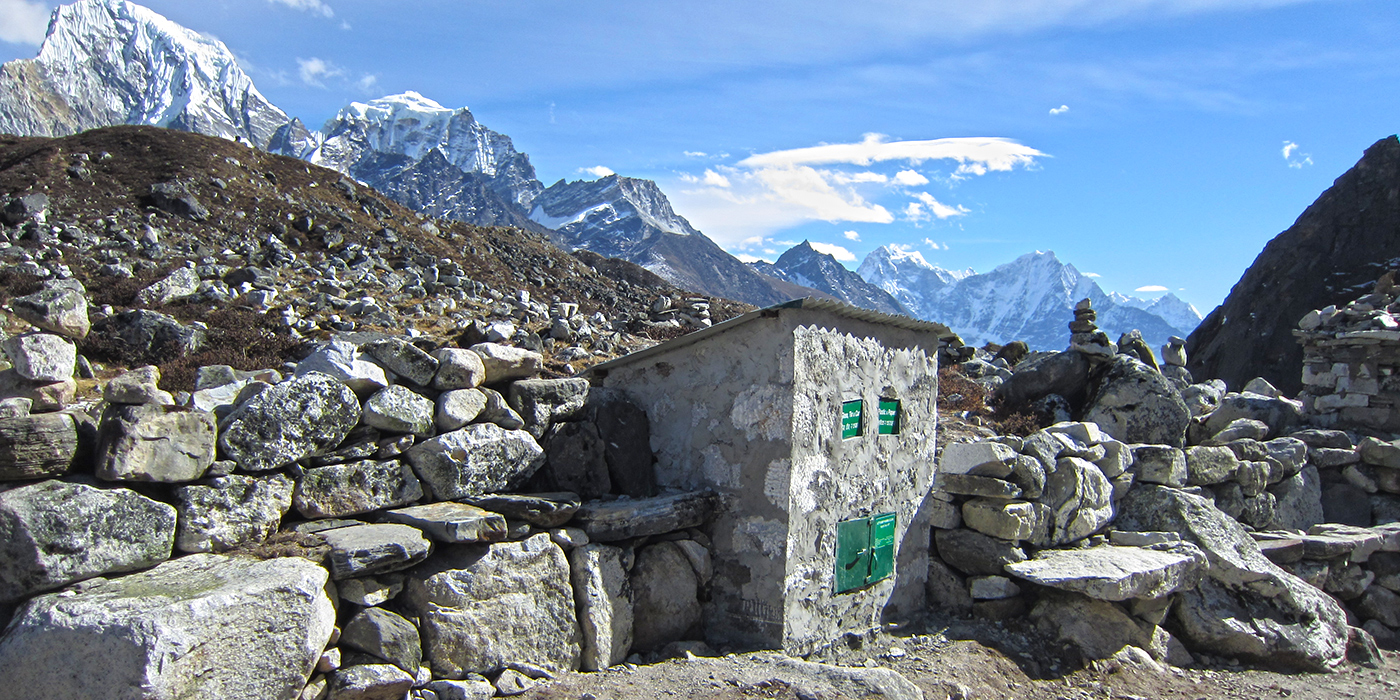
THE SAGARMATHA POLLUTION CONTROL COMMITTEE (SPCC)
WASTE MANAGEMENT IN THE Himalaya’S
With the successful ascent of Mount Everest by Sir Edmund Hillary and Tenjing Norgay Sherpa in 1953, the Khumbu Region has become a popular tourist destination attracting thousands of mountaineers and trekkers from around the globe. In absence of rules and regulations governing the disposal of garbage generated by tourists, a serious concern over solid waste management issues arose in the late 1980’s. This led to the formation of The Sagarmatha Pollution Control Committee (SPCC), a non-profit and non-governmental organization. Since its inception in 1991, the main purpose of the organization has been to keep the Khumbu clean through the development of waste management infrastructure, adopting an integrated sustainable waste management approach, including establishing a system for waste separation, strengthening of community participation in waste management, public education, and finding opportunities for waste reduction, reuse and recycling.
Thanks to the generous donation from World Nomads, the ATCF and its members have awarded the SPCC $29,000 to support the conservation the Khumbu Region of Nepal to ensure a more sustainable future for the community, wilderness, and tourism.
THE ISSUE
The proposed project will provide long-term protection of environmental resources in the Region. Since the first scaling of Mt Everest in 1953, the number of visitors in Khumbu Region has increased greatly: from about 1,400 in 1972-3 to more than 37,000 tourists and approximately 80,000 trekking and expedition staff and porters in 2016. The enormous increase of visitors to the Everest region during the last quarter century has tremendously supported the local economy. Nevertheless, the pressure exerted from tourism has also resulted in increased environmental degradation from waste. The increasing amount of waste produced and stored in the region poses a severe threat to the fragile biodiversity and ecosystem and for the people of the region. The area lacks sufficient waste management infrastructure to cope with solid waste pollution. If appropriate measures are not taken in time to address this issue, it will have irreparable damage to the fragile mountain environment. The main purpose of this project is to set up a proper system for waste collection, and separate waste by categories so it can be properly managed to prevent negative impact on environmental resources.
THE GOAL
Each garbage bin has t30 kilograms of capacity for waste storage. With the completion of 20 garbage bins, several hundreds kilos of waste generated by trekkers will be collected along the trekking trails each year for proper disposal.
The garbage bins will have two chambers to collect burnable and non-burnable garbage separately. With the completion of this project, waste will be separated at the source to be properly recycled, reused, or incinerated.
Minimizing waste through reuse and recycle: “Waste is not waste until it is wasted”: By separating waste by categories, waste such as cans, bottles and glass collected in the garbage bins will be either reused or recycled thus minimizing the volume of waste incinerated or dumped.
PROJECT UPDATES
MORE ABOUT SPCC
"The Sagarmatha Pollution Control Committee (SPCC) is very thrilled to receive the generous support of the Adventure Travel Conservation Fund to build waste management infrastructures along the trekking trails of Mt. Everest Region. We shared a common vision of protecting the unique natural environment of adventure travel destinations. Through wide range of waste management activities, SPCC is committed to protecting the fragile environment of the most popular trekking destination of Nepal. This project will help in strengthening the waste management system of our Region by building 20 garbage bins at various resting points located along the trekking trails that are used by thousands of trekkers from around the globe to see the tallest mountain of the world, Mt. Everest. We look forward to this collaboration for keeping the Everest Region clean." - Ang Dorjee Sherpa, Chairperson, Sagarmatha Pollution Control Committee (SPCC)
Adopt a project Program
The SPCC project was a part of our Adopt a Project Program and was funded by the generous support of World Nomads. World Nomads provides travel insurance for independent travelers and intrepid families. You'd rather not think about all of the things that might go wrong on your trip, but these things can and do happen.
World Nomads travel insurance has been designed by travelers for travelers, to cover your trip essentials. Even if you run out of travel insurance or leave without it, World Nomads can cover you. We don't just keep you and your family protected, with us, you'll travel smarter and safer.













